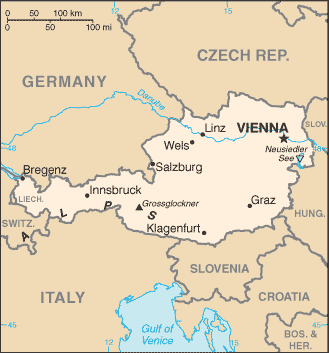This piece of content is not translated in
Português. View the original content in
inglês here.
Drug policy
- Austria’s ‘Addiction Prevention Strategy’ was adopted in 2016 and, combined with Narcotic Substances Act, describes Austria’s drug policy.
- The strategy frames addiction as a disease and supports treatment instead of punishment.
- The policy is structured around three areas of intervention: i) prevention, ii) support for addiction and iii) security.
- The ‘Addiction Prevention Strategy’ uses the addiction cube model to describe the complexity and detail required to support those suffering from addiction.
- The main goals of the strategy are: i) to reduce to a minimum the harmful effects of psychotropic substance use and of behavioural addictions, ii) to provide services, in the context of the health and social care system, to support addicted persons, iii) to reintegrate them into social life or prevent their marginalisation iv) to enable addicted persons to gain control over their lives and to find a meaning in life v) to foster the socially acceptable coexistence of all people in public spaces and in society.
- There is ongoing evaluation and monitoring of the effectiveness of the strategy.
Treatment and Recovery Services
- Drug coordinators are responsible for treatment at regional level.
- Treatment is delivered by specialist centres, as well as within primary care and general healthcare services.
- Treatment is primarily delivered in outpatient services with short term and long term treatment options offered.
- Treatment can involve counselling and psychotherapy, psychosocial programmes and a support to reintegrate back into the community.
- Detoxification treatment is provided in both inpatient and outpatient services
- Particular target groups for treatment service providers are migrants, pregnant women, young people, older drug users and people with psychiatric conditions
- Special treatment programmes are available for cocaine or cannabis users.
- Opioid substitute treatment (OST) is the choice for opioid dependence and Austria is one of the few countries in Europe where slowrelease morphine is prescribed as an opioid substitution medication.
Prevention Services
- Austria’s Strategy advocates for a holistic approach to prevention and views it as a longterm educational process involving the development of life skills.
- Universal prevention strategies are mainly focussed on educational settings with school based prevention curriculum that promotes resilience, psychosocial skills and the development of a critical approach to drugs.
- As well as the school programmes, there has been a recent development of work based prevention courses and interventions for parents, which particularly focus on delivering reliable information and developing communication skills.
- There has been an increase in the delivery of training programmes for those who are in contact with children and young people.
- There are mass media prevention strategies that use technology to discuss issues around wellbeing.
- Selective prevention targets young people experimenting with drugs, adolescents consuming harmful amounts of alcohol, children whose parents use drugs or suffer from mental disorders and those with an immigration background. Activities are delivered in recreational settings and focus on encouraging young people to assess risk, providing counselling, delivering information and explore alternatives to substance use.
- Drug testing services provide onsite pill testing.
- Harm reduction efforts are mainly provided in lowthreshold settings and include the provision of clean injecting equipment, information on safer sex, vaccinations and treatment with new directly acting antivirals. Centres provide information, advice and first aid classes for drug users
Recent Knowledge Share content about Áustria
